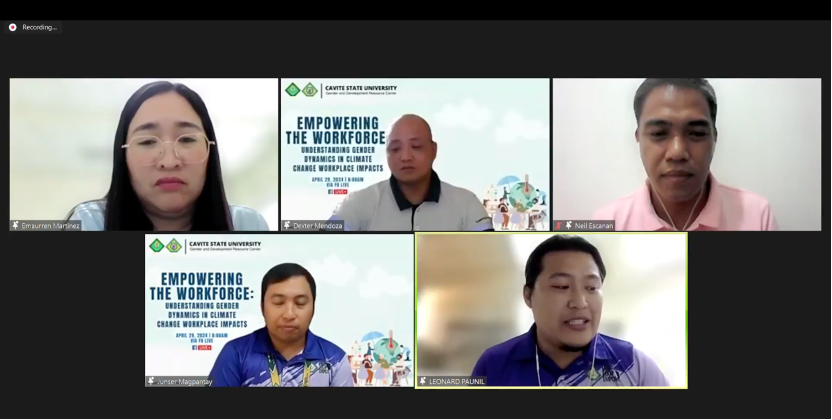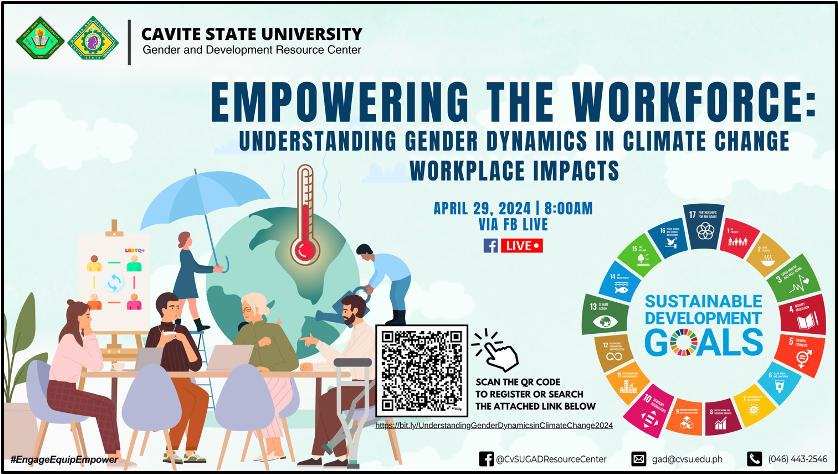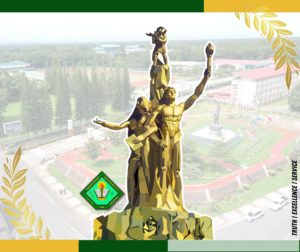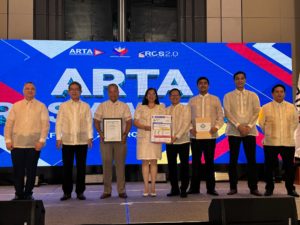![]()
The Cavite State University, through its Gender and Development Resource Center (GADRC), conducted a webinar on April 29, 2024, titled “Empowering the Workforce: Understanding Gender Dynamics in Climate Change Workplace Impacts” streamed via Facebook live.
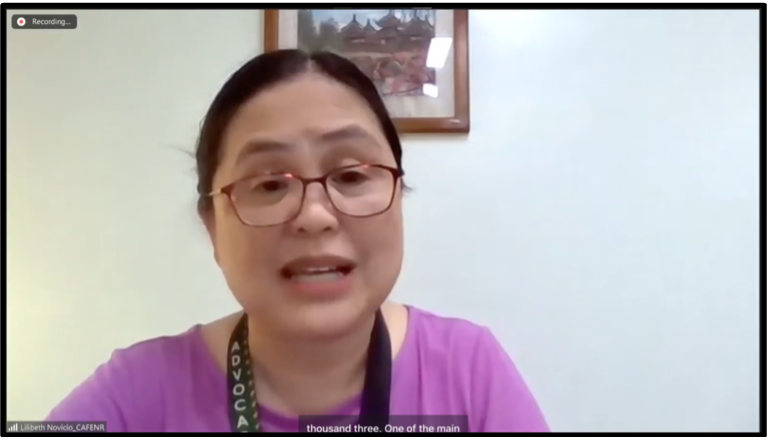
In her opening remarks, Dr. Lilibeth P. Novicio, Dean of the College of Agriculture, Food, Environment and Natural Resources, acknowledged the resource speakers, members of the Administrative Council headed by University President Dr. Hernando D. Robles, together with GADRC Director Dr. Susan G. Tan, staff and faculty members, students, organizers, and the participants who attended the webinar.
Dr. Novicio, discussed the background of the celebration, whereas in 2003 the International Labor Organization (ILO) began to observe the World Day for Safety and Health at Work in order to stress prevention of accidents and diseases at work. She explained that this is a worldwide awareness campaign intended to focus attention on the magnitude of the problem, and how promoting and creating a safety and health culture can help reduce the number of work-related deaths and injuries. She also highlighted how the celebration is an integral part of the global strategy on occupational safety and health at ILO as documented in the conclusions of the International Labor Conference in June 2003.
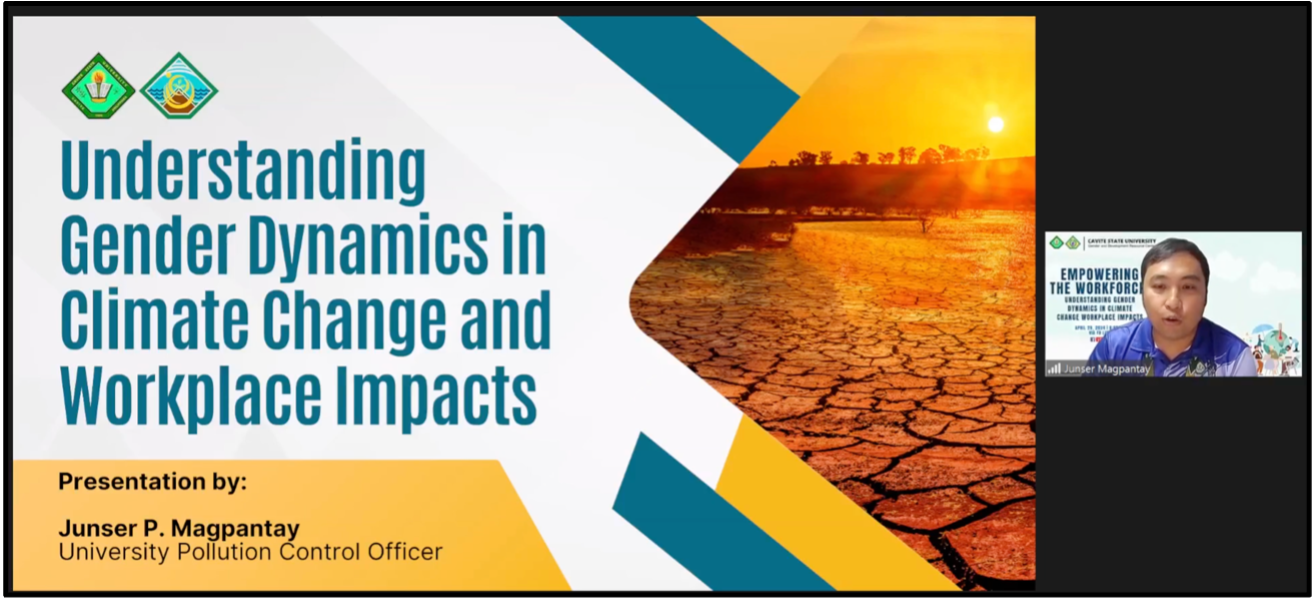
For. Junser P. Magpantay, University Pollution Control Officer, comprehensively discussed the topic “Understanding Gender Dynamic in Climate Change and Workplace Impacts.” He tackled how human activities predominantly drive climate change. For. Magpantay also explained how climate change affects industries relying on natural resources; disrupts the quality of working conditions; and pose risks to women and individuals with disabilities.
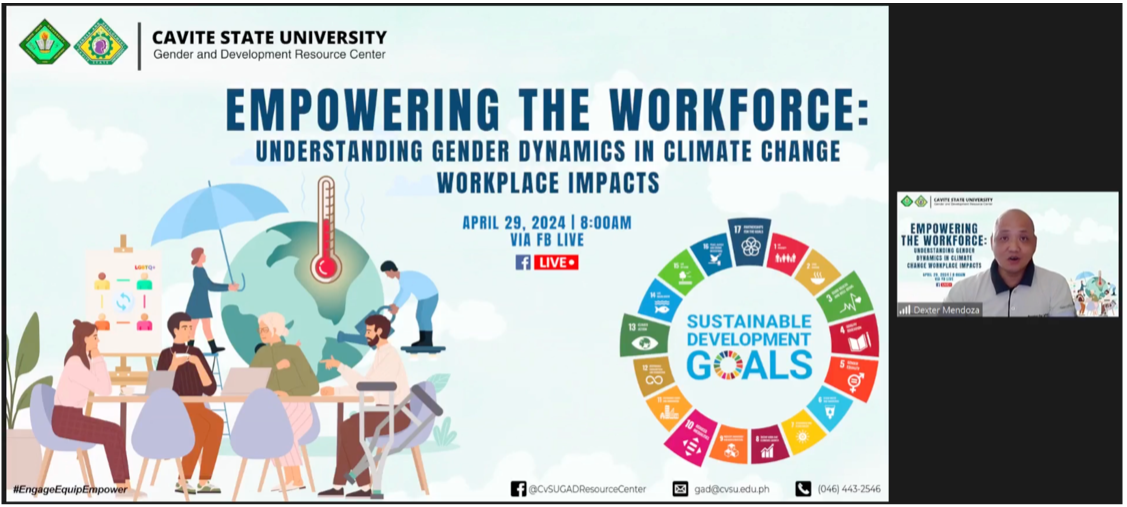
Mr. Dexter P. Mendoza, OSH Practitioner, delved into Gender Inclusive Approaches to Climate Change Risk Assessment in the Workplace where he elaboratively discussed climate change adaptation and disaster risk management. He also presented data on economic and human impact, with 1.4 trillion dollars total damage, 1.7 billion total of people being affected, roughly 70% of deaths caused by earthquakes and tsunamis, and another 30% caused by other disasters (UNISDR).
Mr. Mendoza ended his discussion by highlighting the impacts of climate change under socio-economic and gender dynamics around adaptation and disaster risk reduction. Emphasizing that despite significant strides that have been made in addressing gender inequalities, he said that women are still among the most marginalized groups of the society and are particularly vulnerable to current and future climate change and disaster risks.
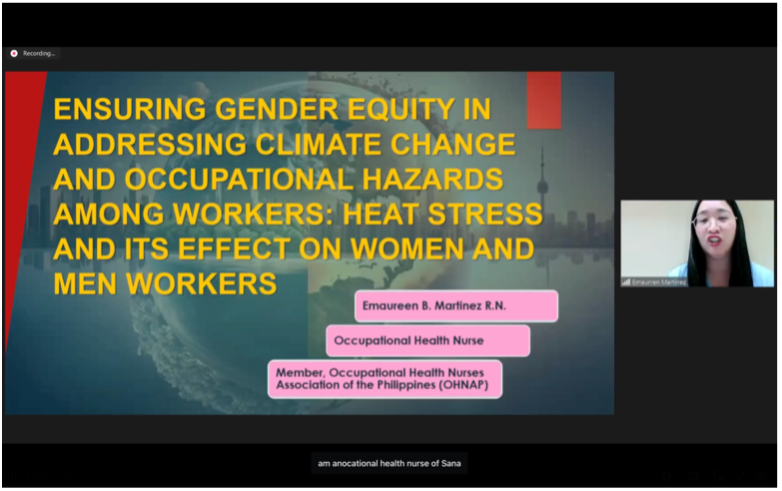
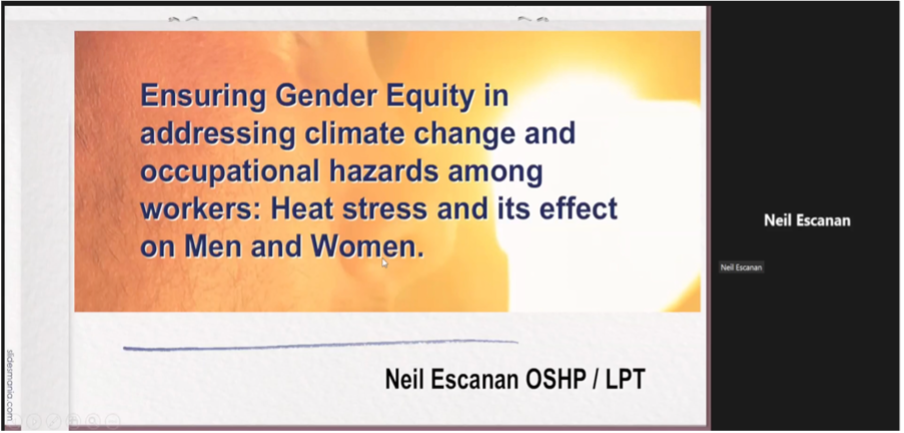
Meanwhile, Ms. Emaureen Go-Buclatin Martinez and Mr. Neil Escañan discussed the topic “Ensuring Gender Equity in Addressing Climate change and Occupational Hazards” where they presented the importance of gender equity in different places such as home, workplace or even in sports.
The speakers also defined heat stress and who are at risk from this condition, including construction workers, firefighters, factory workers, and other occupations that combine manual labor with high temperatures.
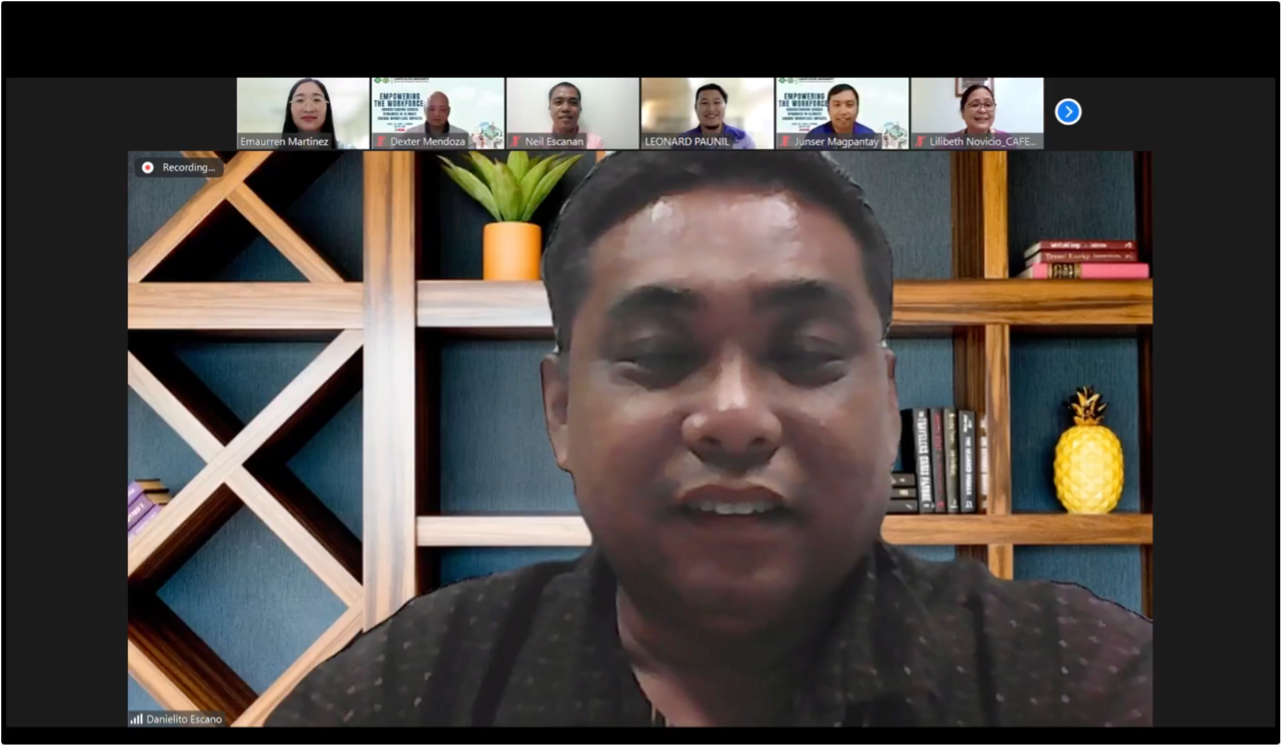
The webinar was formally wrapped up by Prof. Danielito R. Escaño, Director of Physical Plant Services, where he expressed his gratitude towards all the speakers and participants of the webinar. He also mentioned the continuous efforts of the University to fully combat the factors contributing to climate change, such as the launch of total plastic ban and other initiatives to support this cause.
